


Select one of the options below:
Start developing the skills to plan and implement evidence-based prevention programs that make a lasting, positive difference within the community. Learn to strategically mitigate and address the complex impacts of mental, emotional, and behavioral disorders.
Specific topics of study in this program include:
This degree’s curriculum adheres to Society for Prevention Research criteria for online master’s programs in Prevention Science. The combination of formal education and functional knowledge will prepare you for advancement opportunities in a range of fields that relate directly to the development and evaluation of prevention programming, including:
Broadly speaking, prevention science focuses on the development of evidence-based strategies to reduce risk factors and increase protection measures with an overall goal of improving the health and wellbeing of individuals, families, and the community.
Effective prevention science utilizes a multifaceted approach that draws from several disciplines, including human development, psychology and behavioral science, neurobiological sciences, and epidemiology. A central tenet of prevention science is the promotion of health equity and the reduction of disparities by studying how socioeconomic, cultural, and racial inequalities influence healthy development and wellbeing.
This online program allows you to earn your master's degree from a respected, regionally accredited public research university in Colorado without traveling to a campus. Study in a convenient, asynchronous online format. Review course materials and complete assessments when it works for your schedule.
In this episode, we speak with Dr. Nate Riggs about the interdisciplinary field of prevention science and how it has evolved to help reduce risk factors (and enhance protective factors) to improve the health and well-being of individuals, families, and entire communities.
Behavioral health disorders, such as depression and substance abuse, are a leading cause of illness and premature death in the U.S. Although many behavioral health problems can be prevented, effective programs still don’t reach many Americans due in large part to lack of funding and a shortage of adequately trained prevention science professionals.
Prevention science is a continuously evolving field, and this graduate program was designed to prepare you for a variety of career paths, including but not limited to:
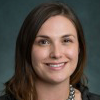
Dr. Bielak’s training is in lifespan developmental psychology, focusing on the factors that contribute to individual differences in cognitive aging, particularly identifying risk factors for decline and optimizing influences for achieving healthy cognitive aging. Dr. Bielak’s expertise is in two primary areas: intraindividual variability (IIV) in cognitive speed, and activity engagement and cognition in older adulthood. Dr. Bielak also has extensive experience working with and analyzing longitudinal datasets, and has developed skills in advanced statistical methods such as multilevel modeling, and bivariate dual change score modeling.
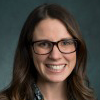
Dr. Brothers is a lifespan developmental scientist, with research focusing on the promotion of healthy aging throughout the lifespan. Dr. Brothers’ areas of interest include attitudes toward aging and awareness of age-related change, and the influence of attitudes toward aging on health, well-being, and health behaviors. Dr. Brothers is trained in measurement development, program evaluation, and advanced statistics. Dr. Brother is currently involved in community-based participatory research projects in which they partner with community members and local professionals to better understand how to promote healthy aging in our community.

Dr. Gerst’s scholarly interests include gender and power dynamics in romantic relationships, maternal mental health, and the scholarship of teaching and learning in family science.
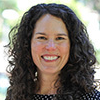
Dr. Harvey spent her early career investigating gender roles in dual earner couples as well as the human-animal bond and grief. More recently, her scholarly interests have coalesced around two main areas: attachment in romantic relationships and the scholarship of teaching.

Dr. Hepburn’s research interests focus on Autism, individual differences, improving access to timely identification and school-based interventions, family-focused interventions, and co-occurring conditions.
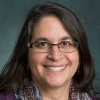
Dr. Krafchick serves as Co-Director of the Campus Connections Youth Mentoring Program that connects youth who have experienced adversity with university student mentors and graduate student therapists. The Campus Connections lab focuses on the development and evaluation of effective preventive interventions to improve developmental outcomes of adolescents and college students.

Dr. MacPhee is the director of Community-University Partnerships in the Prevention Research Center, where his work and appointments straddle HDFS, public health, and social work. His collaborative work in communities, applied research, and teaching focus on various facets of prevention science: risk and resilience, program planning and implementation, parenting and family-based interventions, and especially program evaluation. Lately, his focus on promoting individual and family resilience has expanded into communities’ resilience, specifically their civic capacity and how it relates to community members’ health and well-being.
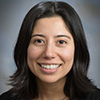
Dr. Ortega’s research broadly focuses on prevention and intervention programs geared towards youth. Dr. Ortega is especially interested in evaluating and understanding programs that use restorative justice approaches in school and community-based settings. Another line of work explores victimization, risk and resilience in order to assist youth in obtaining more positive developmental outcomes.

Dr. Riggs is a prevention scientist devoted to promoting positive youth socioemotional development. A primary research interest is translating basic research in developmental neuroscience to school-based and family-focused interventions that prevent child and adolescent behavioral health problems. Dr. Riggs is the Director of the CSU Prevention Research Center, a campus-wide trans-disciplinary center committed to studying the development, implementation, and evaluation of effective and sustainable preventive interventions across the lifespan. Dr. Riggs is committed to training the next generation of prevention researchers and practitioners. Dr. Riggs has served as the chair of HDFS graduate programs and served on the board of directors for the Society for Prevention Research, where they chaired the training committee that sets the Society’s national agenda for training in prevention science research. Recently funded projects include those that provide statewide training and technical assistance to prevention practitioners implementing community-based preventive interventions.

Currently Dr. Rizzo’s research and practice focuses on the developmental impact of childhood trauma. In the CFCT clinic, Dr. Rizzo conducts and supervises comprehensive assessments on children and adolescents with a history of trauma. Assessments include neurocognitive testing, a psychosocial interview, and collaboration with other professionals serving the child and/or family. Results from assessments are meant to take into account the impact of trauma on topics such as treatment, placement, education, and/or family relationships for the child. The center works closely with a variety of professionals such as guardian ads litem, therapists, social workers, psychiatrists, and educators, as well as family members with the aim of protecting the child and building resilience in the context of a safe environment.
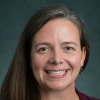
Dr. Walker’s research interests include early prevention and family support programs; early childhood education, school readiness; pedagogy in applied human sciences; parenting across the lifespan; parenting education; and using advanced person- and variable-centered methodologies to inform intervention/prevention science.
The Master of Prevention Science Practice is a 30-credit, coursework-only graduate degree program and does not require completion of a thesis.
Total Program Credits: 30
I feel if everyone had the chance to learn what we learned throughout the program, our world would be in a much better place. So much of the program emphasizes risk factors, and how to mitigate those for our youth. When we mitigate these risk factors, we can help at risk youth choose healthier paths which eventually will benefit our whole society.
Professors were really skilled at creating a community even though the classes were online and I really enjoyed getting to know a lot of my peers through class discussions. They all offered so much knowledge to the classes through their various work and life experiences. Even though the classes are fully online, I always felt connected to the prevention science program and CSU.
| Fall: | July 15 |
| Spring: | December 1 |
| Summer: | April 15 |
Start your application online and upload materials directly into the online system. You can save your progress and return any time.
Apply NowThis master’s degree requires applicants to have the following:
Note that meeting the minimum department standards does not ensure admission to the program. Admission to Colorado State University graduate programs is based on several factors, including prior academic and professional experience and the personal statement.
*GPAs of under 3.0 may be considered with particular attention paid to prevention science, human development, family studies, and psychology related coursework.
Prepare the materials below and upload when you apply online:
Complete the online graduate application and pay the nonrefundable application processing fee (payable online). As soon as you have completed the required information, please submit your application. Your application will not be reviewed until it is complete and all required materials have been received.
Request one official transcript of all collegiate work completed from all institutions attended. Transcripts from Colorado State University are not required. Transcripts must be received directly from the originating institution to be considered official.
Please Note: Students may be unconditionally admitted and registered in their first semester of courses with an unofficial transcript. Official transcripts must be submitted, prior to or during your first semester, before you can register for your second semester of graduate work. Failure to meet this condition will result in your dismissal from the Graduate School.
Electronic (preferred):
Digital Transcripts must be submitted by the originating institution using a secure service such as parchment, eScrip-Safe, the National Student Clearinghouse, or e-Quals. Transcripts received via emails are considered unofficial.
Use institution code 4075 for Colorado State University or gradadmissions@colostate.edu if the secure service requires an email address.
Mail (if necessary)
Graduate Admissions
Colorado State University – Office of Admissions
1062 Campus Delivery
Fort Collins, CO 80523-1062
View your application status at any time to ensure your application checklist is complete or to check on updates.
Once your complete application, including supporting materials, is received, the department admission committee will review your application and notify you of their decision.
Ensure official copies include a certified translation into English (only one set of transcripts is required).
Colorado State University requires that proficiency in English language be demonstrated either by the TOEFL, IELTS, or PTE academic tests prior to admission. Please submit one of the official scores from the list below. Tests must be taken within two years prior to admission and submitted directly from the Educational Testing Service (select institution code: 4075).
All applicants who are citizens of countries in which English is not the official language, and who do not have an undergraduate degree from the U.S. must submit TOEFL, IELTS, or PTE scores.